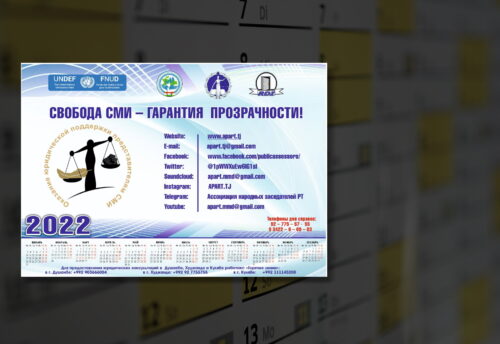All people have the right to freely receive and disseminate information. This right follows from the right to freedom of expression. However, journalists, performing their professional activities, often face problems in the exercise of this right. The “New Reporter” wrote down the recommendations of the media lawyer of the Legal Media Center Gulmira Birzhanova, which are based on journalists’ questions on this topic.
What law should I use when preparing a request for information?
Journalists can use both laws in their activities — “On Mass Media” and “ON access to Information”. The only difference is that a journalistic request is signed by an editor or a journalist, and when preparing a request under the law “On Access to Information” you sign it as an individual. There is also a difference in terms: according to the law on mass media — seven days, according to the law “On access to information” – 15 days.
Now, according to the law “On Mass Media”, there is a division into an official message and information that is not included in official messages, what are their differences?
The differences are that official messages are those messages that were voiced by a state agency (briefings, interviews, etc.). Information that requires additional time to respond refers to information that is not included in the official message.
The next difference is in timing. You have the right to send a request for clarification of the official communications provided, to which you must respond within two working days from the date of registration of the request or give an answer indicating the deadline for its submission or a reasoned refusal.
Remember: if your request requires additional study and verification, the review period may be extended once by the head of the organization for no more than 15 calendar days, which you will be informed about within two working days from the date of extension of the review period. If the requested information is not included in official communications, the response is provided within seven working days from the date of its receipt.
Are legal entities, for example, LLP, required to provide information upon request in accordance with the law “On Access to Information”?
Yes, legal entities, if they are recipients of budgetary funds, are required to provide information regarding the use of funds allocated from the state budget. For example, about the funds allocated for road repairs as part of public procurement.
I was refused to provide information, what should I do?
First of all, we advise you not to ignore such facts, otherwise problems with access to information will remain unresolved. How to react? It is necessary to appeal the refusal. Apply to a higher authority, or to an official in the order of subordination, or to a court (appeal against illegal actions of officials). It is important that a preliminary appeal to higher authorities and to an official is not a prerequisite for submitting an application to the court. Disciplinary, civil and administrative liability is provided for failure to provide information.
We used personal data in the publication, now we are being asked to delete this material due to the lack of consent to the dissemination of personal data. But these personal data were previously published on the website of state agencies. Do we need to delete stuff in this situation?
The number of demands for the removal of already published materials has increased recently, and some of these claims really relate to the dissemination of personal data in media publications. Here I would like to draw attention to two points:
the collection and processing of personal data is carried out without the consent of the subject or his legal representative in cases of legitimate professional activities of a journalist and (or) the activities of the mass media or scientific, literary or other creative activities, subject to compliance with the requirements of the legislation of the to ensure human and civil rights and freedoms ( “On Personal Data and their protection”);
the second point concerns the collection and processing of personal data for the activities of government agencies. Usually, either the user gives permission to use their data — for example, when using e-government, or government agencies take measures to preserve personal data or depersonalize them.
The websites of state bodies are a valuable source of information for media editorial offices. If the personal data is published on the website lawfully, the editorial office of the media will be protected by Law “On Personal Data and their protection” during their further dissemination. The User may request to delete their personal data if their collection, storage and processing do not meet the stated goals. However, the requirement to delete already published material does not correspond to the usual measures of protection of the violated right. In this case, you can use the right to reply, the right to refute and other measures provided for by the current laws. For example, a claim for compensation.
The information is taken from the website www.nansmit.tj .




Leave a Reply